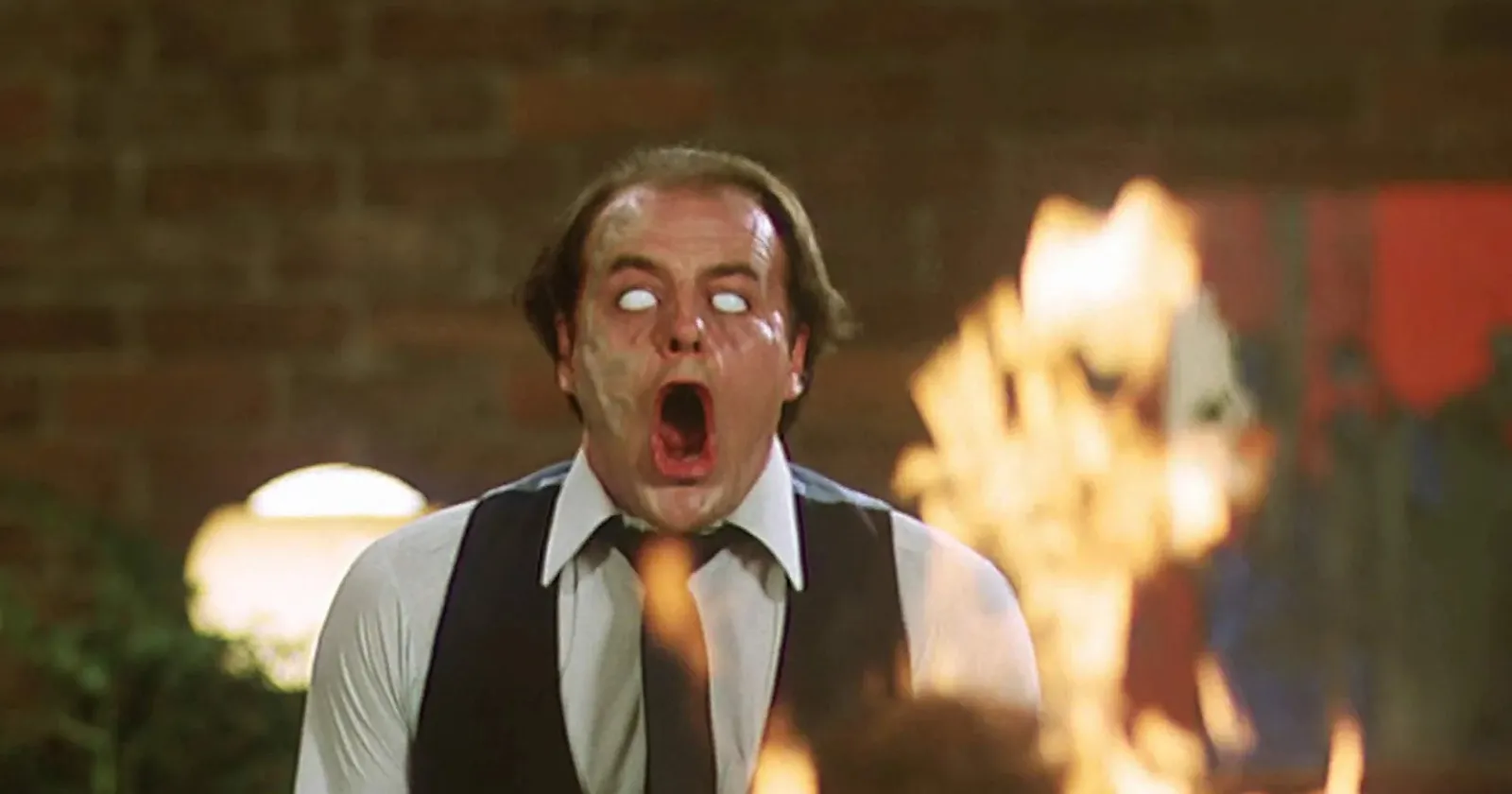Scanners is far from Cronenberg’s best, but it’s still an essential artifact for fans of his work—especially for those interested in tracing how his style evolved from straight horror (Rabid, The Brood) into more philosophical and speculative realms. It’s an influential film, no doubt. Just not the one you’ll revisit the most.

‘Scanners’ Movie Review
Of all David Cronenberg’s early triumphs, Scanners (1981) might be the most iconic for a single shot—and the most inconsistent when you sit through the rest of the runtime. Yes, this is the movie with that exploding head, a scene that’s become a permanent fixture in sci-fi and horror highlight reels. But beyond its instantly legendary gore moment, Scanners is a strange and often uneven ride, full of fascinating ideas that feel more exciting on paper than they often do on screen.
This was Cronenberg’s first major commercial success in the U.S., a leap forward in scale after the low-budget horror of Shivers and Rabid. It expands his familiar obsessions—body horror, institutional paranoia, and the hidden corruption in society’s underbelly—into the realm of science fiction with far greater ambition. But unlike The Brood (1979), which came right before and feels more emotionally jagged and tonally complete, Scanners plays like a conceptual bridge: a proof of what Cronenberg would soon achieve more powerfully in Videodrome and The Fly.
The story follows Cameron Vale (Stephen Lack), a man with powerful psychic abilities who’s been living on the fringes of society until he’s captured by a private security company and tasked with finding and neutralizing other “scanners”—people like him, capable of reading and controlling minds, and even killing with sheer mental force. His main adversary is the menacing Darryl Revok, played by a scene-stealing Michael Ironside, whose intensity gives the film most of its punch.
There’s plenty of classic Cronenberg here: shady corporate interests meddling in human evolution, grotesque bodily transformations, and the slow unspooling of a shadow war between factions of the hyper-gifted. But Scanners doesn’t quite lock in its tone. Stephen Lack, while visually fitting the disoriented psychic archetype, gives a flat and often wooden performance that makes it hard to connect with the protagonist. The pacing, too, is patchy—often drifting between bursts of psychic action and long stretches of exposition that never quite pop off.
Still, as early Cronenberg goes, Scanners is a necessary step in his evolution. It marks the shift from lo-fi body horror into the more cerebral, genre-blending territory he’d master in Videodrome (1983), Naked Lunch (1991), and eXistenZ (1999). You can feel the tension here between mainstream science fiction and Cronenberg’s signature weirdness. It doesn’t always work, but it’s trying to articulate something deeper—about control, conformity, rebellion, and mutation.
And despite its flaws, there are sequences that earn their place in the sci-fi canon. Aside from the famous head explosion, there are several tense confrontations between scanners that showcase Cronenberg’s flair for the uncanny, the uncomfortable, and the unsettling.
READ MORE MOVIE REVIEWS: The Elephant Man, Star Trek: The Wrath of Khan, Dune
Scanners is far from Cronenberg’s best, but it’s still an essential artifact for fans of his work—especially for those interested in tracing how his style evolved from straight horror (Rabid, The Brood) into more philosophical and speculative realms. It’s an influential film, no doubt. Just not the one you’ll revisit the most.
Score: 6/10
Scanners (1981)
- Cast: Jennifer O’Neill, Stephen Lack, Patrick McGoohan, Lawrence Dane, Michael Ironside
- Director: David Cronenberg
- Genre: Horror, Science Fiction
- Runtime: 103 minutes
- Rated: R
- Release Date: January 14, 1981
- Movies Like Scanners: Doctor Sleep, Barbarian, Midsommar, More Movies like Scanners